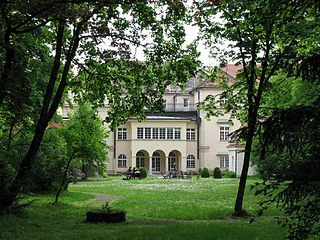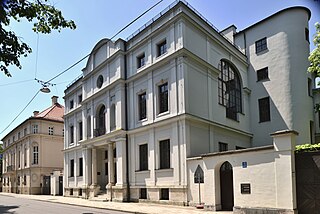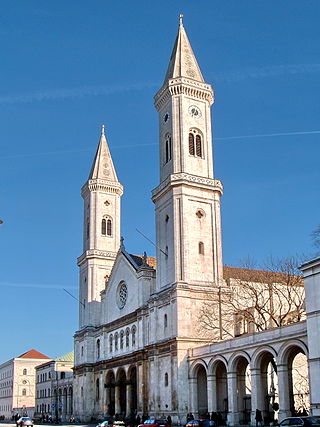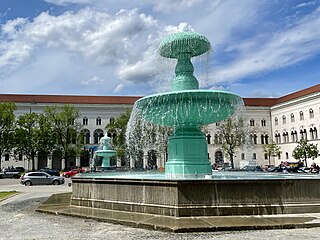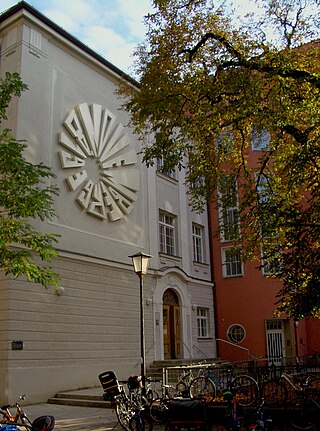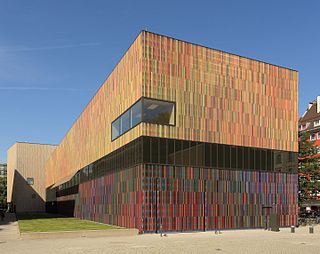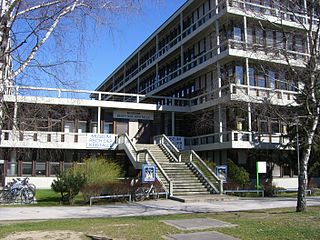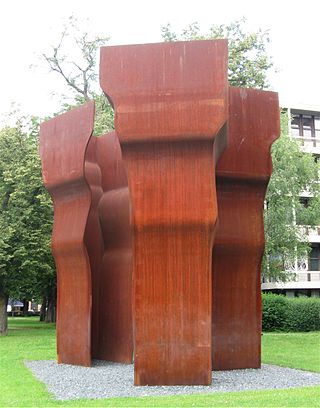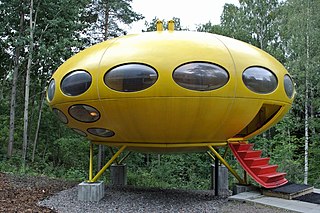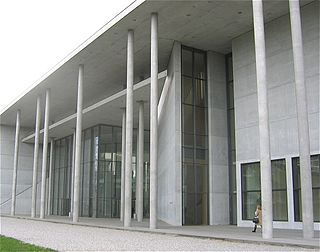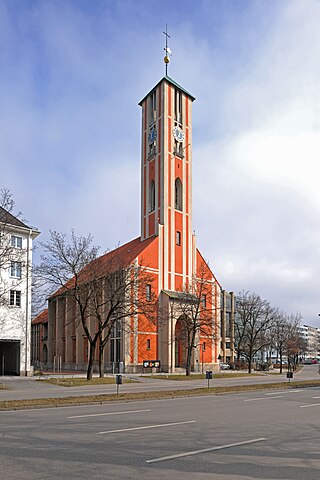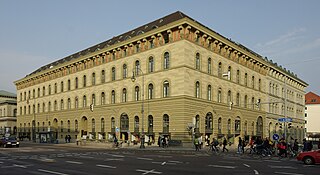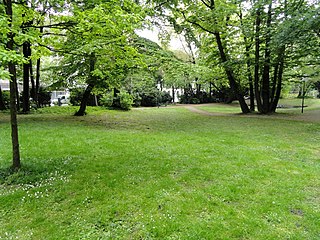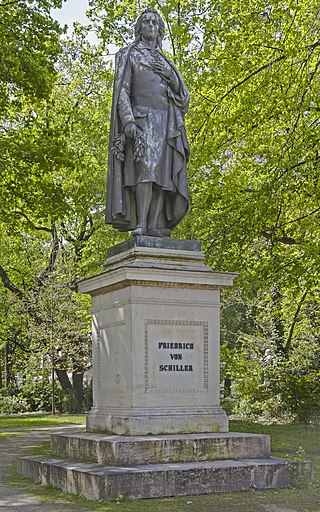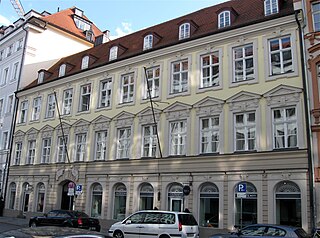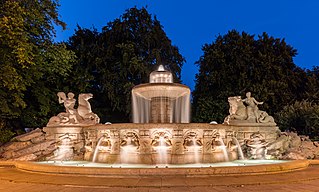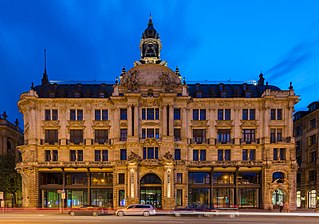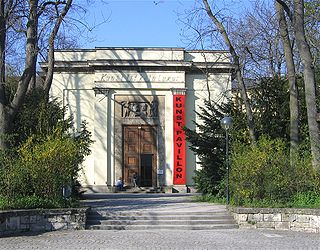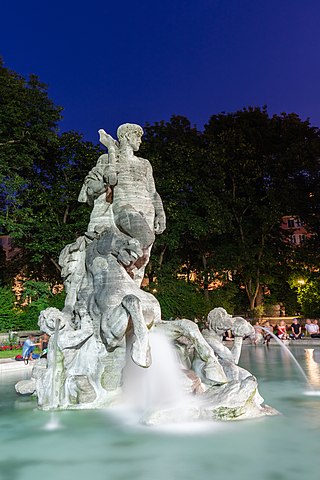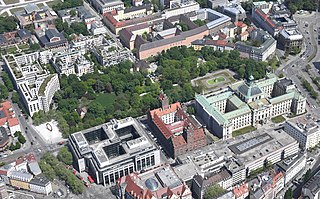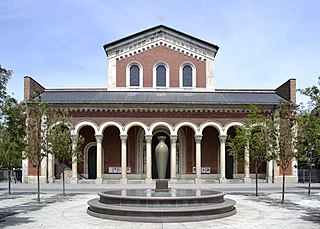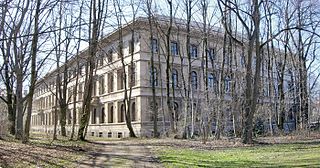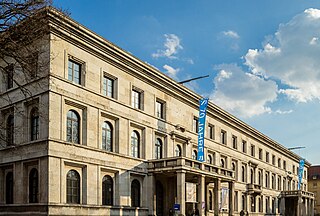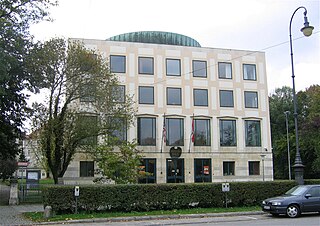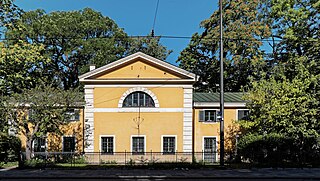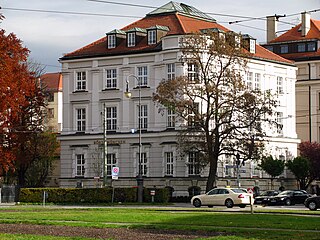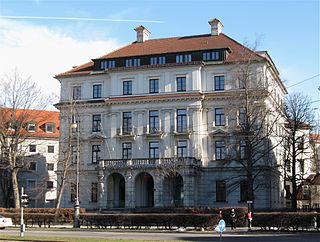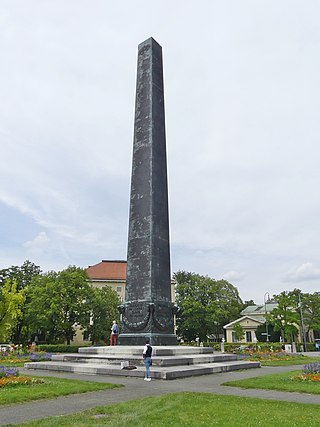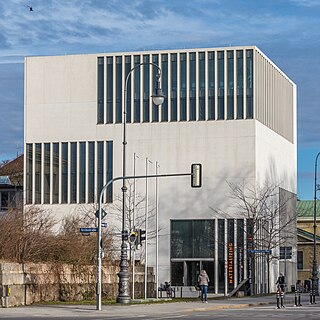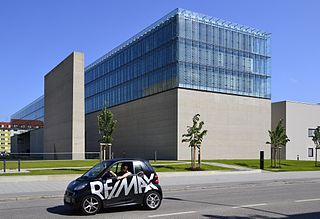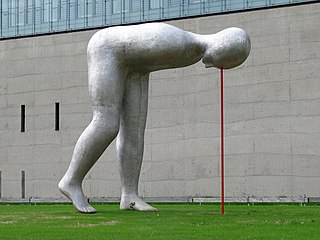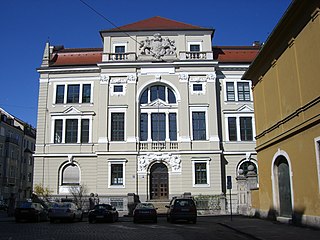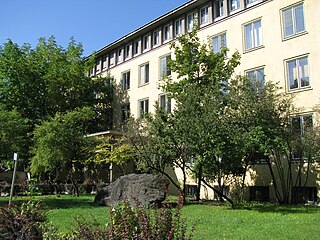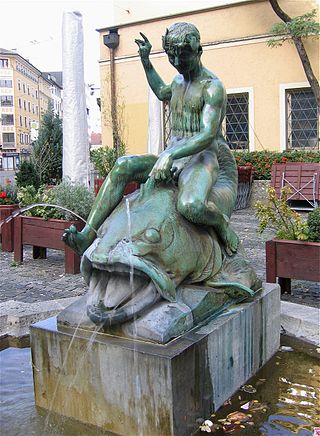Self-guided Sightseeing Tour #5 in Munich, Germany
Legend
Guided Free Walking Tours
Book free guided walking tours in Munich.
Guided Sightseeing Tours
Book guided sightseeing tours and activities in Munich.
Tour Facts
9.4 km
153 m
Experience Munich in Germany in a whole new way with our free self-guided sightseeing tour. This site not only offers you practical information and insider tips, but also a rich variety of activities and sights you shouldn't miss. Whether you love art and culture, want to explore historical sites or simply want to experience the vibrant atmosphere of a lively city - you'll find everything you need for your personal adventure here.
Activities in MunichIndividual Sights in MunichSight 1: Palais Seyssel d’Aix
The Palais Seyssel d'Aix is a small castle at Kaulbachstraße 13 in the Maxvorstadt district of Munich. It is listed as an architectural monument in the Bavarian List of Monuments and has been the headquarters of the Institut français in Munich since 1954.
Sight 2: Historisches Kolleg
The Kaulbach Villa in Munich was built as a representative residence of the painter Friedrich August von Kaulbach in the Neo-Renaissance style. The building designed by Gabriel von Seidl at Kaulbachstraße 15 in the Maxvorstadt district is listed as an architectural monument in the Bavarian List of Monuments and is now the seat of the Historisches Kolleg.
Sight 3: St. Ludwig
Get Ticket*The Catholic Parish and University Church of St. Louis, called Ludwigskirche, in Munich is a monumental church in Neo-Romanesque style with the second-largest altar fresco of the world. The building, with its round arches called the Rundbogenstil, strongly influenced other church architecture, train stations and synagogues in both Germany and the United States.
Sight 4: Römischer Brunnen
The two bowl fountains on Geschwister-Scholl-Platz and Professor-Huber-Platz in Maxvorstadt in the Bavarian capital of Munich were built by King Ludwig I from 1840 to 1844 by the architect Friedrich von Gärtner in the classicist style, based on the model of the fountains on St. Peter's Square in Rome. The iron and granite facilities are listed as historical monuments.
Sight 5: Siegestor
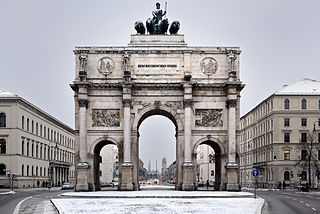
The Siegestor in Munich is a three-arched memorial arch, crowned with a statue of Bavaria with a lion-quadriga. The monument was originally dedicated to the glory of the Bavarian army. Since its restoration following World War II, it now stands as a reminder to peace.
Sight 6: DenkStätte Weiße Rose
The White Rose Memorial at the atrium of the Ludwig-Maximilians-Universität (LMU) in Munich is a central place of remembrance for the history of the student resistance of the White Rose. It was opened in 1997 in cooperation with the White Rose Foundation e.V. and the university. Since then, people there have been informing themselves about the White Rose resistance group; currently over 40,000 a year, of which almost 40 percent come from abroad.
Sight 7: 8. November 1939
8. November 1939 is the name of the Johann Georg Elser Memorial in Munich to commemorate the resistance fighters fighting against the Nazis. The monument is located in the Maxvorstadt district.
Sight 8: Museum Brandhorst
The Brandhorst Museum was opened in Munich on 21 May 2009. It displays about 200 exhibits from the modern art collection of the heirs of the Henkel trust Udo and Anette Brandhorst. In 2009 the Brandhorst Collection comprises more than 700 works.
Sight 9: Museum Mineralogia München
The Museum Reich der Kristalle is the publicly accessible part of the Mineralogischen Staatssammlung of Munich, Germany. It features explanations of mineralogical and crystallographic terms using models. It also showcases minerals local to Bavaria. The museum has a few small displays as well as a showroom which hosts special exhibitions.
Sight 10: Buscando la Luz
Buscando la Luz II is a monumental sculpture by Eduardo Chillida. It is the second in a series of four works of art of the same name: Buscando la Luz I (1997) and Buscando la Luz III (2000) are located in the sculpture park of the Chillida Leku Museum in Spain, Buscando la Luz IV (2001) on the grounds of the University of Qatar in Doha.
Sight 11: The design museum
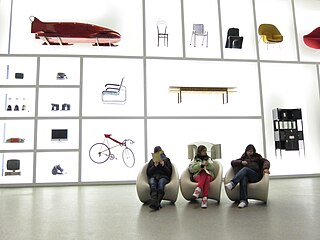
Die Neue Sammlung is one of the leading design museums in the world, with the largest collection of industrial and product design.
Sight 12: Futuro-Haus
A Futuro house, or Futuro Pod, is a round, prefabricated house designed by Finnish architect Matti Suuronen, of which fewer than 100 were built during the late 1960s and early 1970s. The shape, reminiscent of a flying saucer, and the structure's airplane hatch entrance has made the houses sought after by collectors. The Futuro is composed of fiberglass-reinforced polyester plastic, polyester-polyurethane, and poly(methyl methacrylate), measuring 4 metres high and 8 metres in diameter.
Sight 13: Pinakothek der Moderne
The Pinakothek der Moderne is a modern art museum, situated in central Munich's Kunstareal.
Sight 14: St. Markus
St. Markus is located in Maxvorstadt, Munich, Bavaria, Germany.
Sight 15: Haslauer-Block
The Haslauer Block is a listed classicist business, office and residential building on Ludwigstraße with house numbers 6–10 in Munich. The block is located between Von-der-Tann-Straße, which passes to the south, and Schönfeldstraße.
Sight 16: Nornenbrunnen
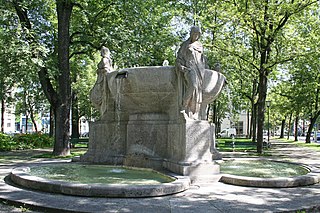
The Nornenbrunnen is a fountain in the center of Munich, Germany. It was built in 1907 based on a design by Hubert Netzer in Art Nouveau style. The fountain is constructed of Kirchheim limestone and depicts the Norns, the three Germanic goddesses of destiny: Urd, Verdandi, and Skuld, who lean against a large water bowl. Between the figures are three mouths from which the water pours into three shallow basins on the ground.
Sight 17: Maximiliansplatz
Maximiliansplatz is a park-like square in Munich, Germany, located on the border of the districts of Altstadt-Lehel and Maxvorstadt. It used to be known as Dultplatz. Maximiliansplatz is the northwestern part of Munich's Altstadtring.
Sight 18: Friedrich von Schiller
The Schiller Monument in Munich is located on Maximiliansplatz and honors the German poet Friedrich Schiller. It is a bronze figure on a granite base with limestone steps.
Sight 19: Palais Seinsheim
The Palais Seinsheim is a city palace in the late Rococo style at Prannerstraße 7 in Munich.
Sight 20: Palais Gise
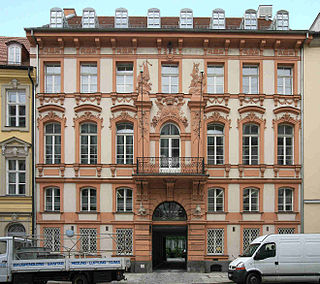
The Palais Gise is a city palace in the late Rococo style at Prannerstraße 9 in Munich. It was probably built around 1760/65 according to the designs of the Munich chief court architect Karl Albert von Lespilliez and is an architectural monument.
Sight 21: Wittelsbacher Fountain
The Wittelsbach Fountain is a monumental fountain on the northwestern edge of Munich's city center, at the transition from Lenbachplatz to Maximiliansplatz. It was built between 1893 and 1895 according to plans by the sculptor Adolf von Hildebrand in the neoclassical style. His motif is an allegory of the elemental forces of the element water.
Sight 22: Bernheimer-Haus
The Bernheimer-Haus, also known as the Bernheimer Palace, is a residential and commercial building located on Lenbachplatz 3 in Munich. The building was built in 1888/89 by architect Friedrich von Thiersch with a neo-baroque style façade designed by his apprentice Martin Dülfer, making the building one of the first of its kind and later the most influential for all other buildings of its type in Munich. The building is protected as cultural heritage.
Sight 23: Kunstpavillon
The Kunstpavillon München is a building in the Old Botanical Garden in the Königsplatz district of Munich's Maxvorstadt district. It belongs to the Kunstareal München.
Sight 24: Neptunbrunnen
Neptunbrunnen is a fountain located in the Alter Botanischer Garten of Munich, Germany. It was sculpted in 1937 at the behest of the National Socialist government by Josef Wackerle. A muscular statue of neptune stands in the middle of the fountain, holding a trident on his shoulder, above a fish-tailed horse rising from the water.
Sight 25: Alter Botanischer Garten
The Old Botanical Garden is an urban park and former botanical garden in Maxvorstadt, Munich, Germany.
Sight 26: Basilika St. Bonifaz
St. Boniface's Abbey is a Benedictine monastery in Maxvorstadt, Munich, Bavaria, Germany. It was founded in 1835 by King Ludwig I of Bavaria, as a part of his efforts to reanimate the country's spiritual life by the restoration of the monasteries destroyed during the secularisation of the early 19th century.
Sight 27: Haus der Kulturinstitute
Münchner Haus der Kulturinstitute is located in Maxvorstadt, Munich, Bavaria, Germany.
Sight 28: Staatliche Graphische Sammlung
The Staatliche Graphische Sammlung in Munich (München), Germany, is a large collection of drawings, prints and engravings. It contains 400,000 sheets starting from the 15th century from various artists around the world. Along with Kupferstichkabinett Berlin and Kupferstichkabinett Dresden, it is the most important collection of its kind in Germany. It is owned by the government of Bavaria and located within the Kunstareal, a museum quarter in the city centre of Munich.
Wikipedia: Staatliche Graphische Sammlung München (EN), Website
Sight 29: Museum für Abgüsse klassischer Bildwerke
The Museum für Abgüsse Klassischer Bildwerke is located in the central Maxvorstadt district in Munich, Bavaria, Germany. It is situated, with a number of other cultural institutions, within the Münchner Haus der Kulturinstitute in Katharina-von-Bora-Straße, near the Königsplatz.
Wikipedia: Museum für Abgüsse Klassischer Bildwerke (EN), Website, Wheelchair Website
Sight 30: Bavarian Center for Transatlantic Relations
The Amerikahaus is a cultural institution on Karolinenplatz in Munich's Kunstareal, which opened in 1948 as the Amerika-Haus.
Sight 31: Staatssammlung für Anthropologie und Paläoanatomie
The State Collection of Anthropology and Paleoanatomy in Munich is a research institution of the Bavarian State Natural History Collections, which is dedicated to the prehistory and early history of humans in Bavaria, including the animal world and the environment, by means of permanent physical relics, especially skeletons.
Wikipedia: Staatssammlung für Anthropologie und Paläoanatomie (DE), Website
Sight 32: Börse München
The Börse München is a stock exchange based in Munich, Germany. Founded in 1830, it currently lists over 6300 securities.
Sight 33: Prinz-Georg-Palais
The Prinz-Georg-Palais at Karolinenplatz 5 is a detached building that is registered as an architectural monument in the Bavarian List of Monuments.
Sight 34: Karolinenplatz
The obelisk on Karolinenplatz is a memorial in Munich. It was built in 1833 by King Ludwig I by the architect Leo von Klenze for the 30,000 Bavarian soldiers who had fallen in the Napoleonic Russian campaign of 1812.
Sight 35: NS-Dokumentationszentrum München
The Munich Documentation Centre for the History of National Socialism is an institution of the City of Munich together with the Free State of Bavaria and the Federal Republic of Germany.
Sight 36: Staatliches Museum Ägyptischer Kunst
The Staatliches Museum Ägyptischer Kunst is an archaeological museum in Munich. It contains the Bavarian state collection of ancient Egyptian art and displays exhibits from both the predynastic and dynastic periods. The associated small Middle East section displays objects from the areas of Assyrian and Babylonian culture. For decades, the Egyptian museum was located in the Munich Residenz, but it was moved to the Kunstareal in June 2013.
Wikipedia: Staatliche Sammlung für Ägyptische Kunst (EN), Website
Sight 37: Present Continuous
Present Continuous is a monumental sculpture by the Dutch sculptor Henk Visch, which was erected in May 2011 between the entrance of the new building of the University of Television and Film and the entrance of the State Museum of Egyptian Art in Munich on a green strip along Gabelsbergerstraße.
Sight 38: Alte Pinakothek
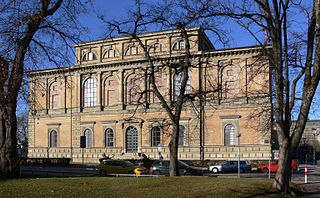
The Alte Pinakothek is an art museum located in the Kunstareal area in Munich, Germany. It is one of the oldest galleries in the world and houses a significant collection of Old Master paintings. The name Alte (Old) Pinakothek refers to the time period covered by the collection—from the fourteenth to the eighteenth century. The Neue Pinakothek, re-built in 1981, covers nineteenth-century art, and Pinakothek der Moderne, opened in 2002, exhibits modern art. All three galleries are part of the Bavarian State Painting Collections, an organization of the Free state of Bavaria.
Sight 39: Musiklabor
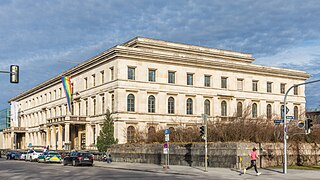
The University of Music and Theatre Munich, also known as the Munich Conservatory, is a performing arts conservatory in Munich, Germany. The main building it currently occupies is the former Führerbau of the NSDAP, located at Arcisstraße 12, on the eastern side of the Königsplatz. Teaching and other events also take place at Luisenstraße 37a, Gasteig, the Prinzregententheater, and in Wilhelmstraße (ballet). Since 2008, the Richard Strauss Conservatory, until then independent, has formed part of the university.
Sight 40: Paläontologisches Museum
The Palaeontological Museum in Germany, is a German national natural history museum located in the city of Munich, Bavaria. It is associated with the Ludwig-Maximilians-Universität. It has a large collection of fossils of animals and plants such as Mesozoic reptiles, early elephants and saber-toothed cats. The paleontological and geological institute which houses the museum is formally called the Bavarian State Collection for Palaeontology and Geology, which itself is one of several institutions which make up the Bavarian Natural History Collections.
Sight 41: Geologisches Museum
Geologisches Museum München is located in Maxvorstadt, Munich, Bavaria, Germany.
Sight 42: Propyläen
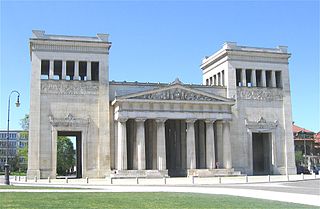
The Propylaea is a city gate in Munich at the west side of Königsplatz.
Sight 43: Delphinbrunnen
Delphinbrunnen, a 1902 bronze by Arthur Storch, is located in Maxvorstadt, Munich, Bavaria, Germany.
Share
How likely are you to recommend us?
Disclaimer Please be aware of your surroundings and do not enter private property. We are not liable for any damages that occur during the tours.
GPX-Download For navigation apps and GPS devices you can download the tour as a GPX file.
